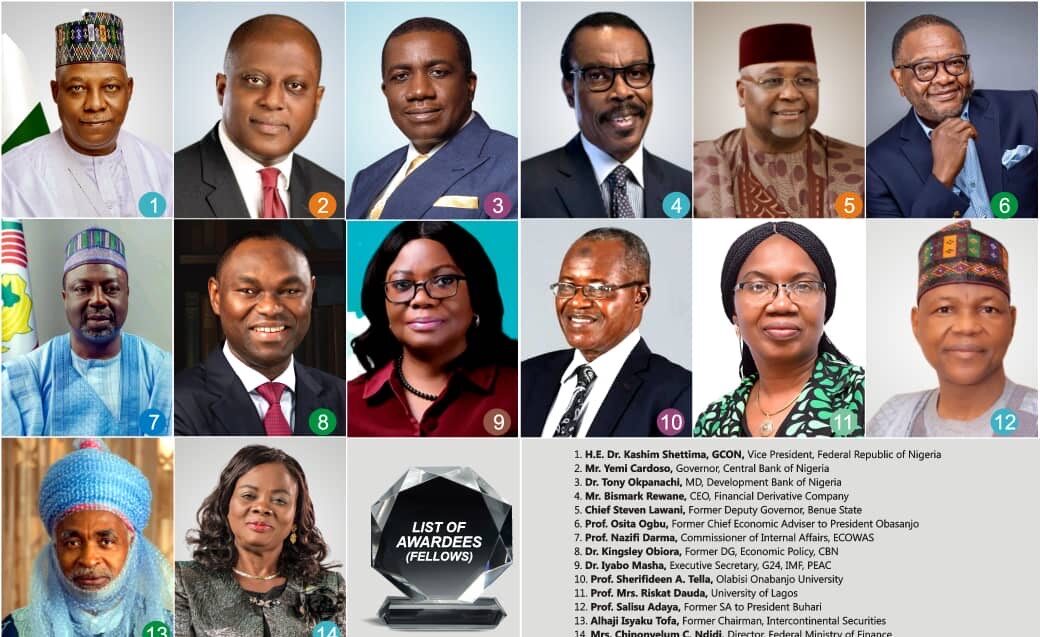- C JN says it’s democratic tool for wealth creation, national stability
- Urges judges to be responsive to evolving commercial realities
- EFCC convicts 12 of 58 entities operating ponzi schemes
- N’Assemby moves to transition IST to normal court
Ndubuisi Francis in Abuja
Vice President, Senator Kashim Shettima has identified the capital market as a critical tool for diversifying the nation’s economy away from over-reliance on a single commodity, with a view to fostering indigenous industrialisation, and attracting both domestic and foreign direct investments.
A well-functioning capital market, he argued, can unlock latent wealth, deepen financial inclusion, and ultimately improve the living standards of the citizens.
The Vice President spoke in Abuja, Monday at the opening of a two-day Capacity Building Interactive Workshop on Capital Market Law, Ethics and Judicial Interpretations for Judges of Superior Courts, jointly convened by the Securities and Exchange Commission (SEC)and the National Judicial Institute (NJI).
Participants at the workshop include judges, parliamentarians, regulators, legal and capital market experts who are deliberating on ways to modernise dispute resolution in Nigeria’s capital market and ensure the system keeps pace with globally evolving financial practices.
Represented by the Special Adviser to the President on Economic Matters, Tope Fasua, the VP described the capital market as the conduit through which national savings are channeled into productive ventures, driving the wheels of progress and prosperity.
According to him, the theme of the workshop, “Repositioning the Nigerian Capital Market for National Economic Transformation through Effective Dispute Resolution,” was not merely a topic for discussion; but “a clarion call, a strategic imperative that resonates deeply with the economic agenda of this administration.”
Shettima stressed that this underscored the undeniable truth that a robust, efficient, and trustworthy capital market is the bedrock upon which sustainable national economic transformation can be built.
The Vice President observed
the capital market is far more than just a platform for buying and selling securities, but is the lifeblood of modern economies, a sophisticated ecosystem that mobilises long-term capital for productive investments.
“It connects savers with investors, providing the necessary liquidity for businesses to expand, innovate, and create jobs. It is where infrastructure projects find funding, where small and medium enterprises (SMEs) can scale, and where the dreams of entrepreneurs can take flight.
“In Nigeria, a nation brimming with potential and a youthful, dynamic population, the capital market holds an even greater significance. It is a critical tool for diversifying our economy away from over-reliance on a single commodity, fostering indigenous industrialization, and attracting both domestic and foreign direct investments.
“A well-functioning capital market can unlock latent wealth, deepen financial inclusion, and ultimately improve the living standards of our citizens. It is the conduit through which national savings are channeled into productive ventures, driving the wheels of progress and prosperity,” he stated.
Considering the sheer scale of national aspirations, including massive infrastructure development, a thriving digital economy, a revitalised agricultural sector, and a diversified industrial base, he submitted that none of these can be achieved without substantial, long-term capital, which is only available in the capital market.
According to him while the banking sector is vital, and primarily provides short-term financing, he explained that it is the capital market, with its capacity for equity and long-term debt instruments, that offers the patient capital required for the transformative projects.
“It is the platform for public-private partnerships, for securitizing future revenues, and for allowing ordinary Nigerians to partake in the growth story of our nation,” he stressed.
However, he noted that the effectiveness of any capital market hinges on one fundamental and non-negotiable element–trust, adding that investors, whether local or international, institutional or retail, will only commit their hard-earned capital where they are confident that their investments are secure, that transactions are transparent, and that their rights are protected.
This confidence, he stressed, is built on a foundation of strong regulatory frameworks, efficient market operations, and, crucially, an effective and impartial system of dispute resolution.
“We acknowledge the challenges that have, at times, hampered the full realization of our capital market’s potential. These include issues related to market liquidity, investor education, and indeed, the perception of the efficiency and fairness of our dispute resolution mechanisms.
“In a globalised financial landscape, capital is highly mobile and seeks environments that offer not just returns, but also certainty and legal predictability. Any perceived weakness in our dispute resolution framework can deter potential investors, diverting capital to more attractive jurisdictions,” he said.
In her keynote address, the Chief Justice of Nigeria (CJN), Justice Kudirat Kekere-Ekun who was represented by a Supreme Court Justice, Stephen Jonah Adah, also noted that the capital market today is no longer a distant abstraction limited to high finance or institutional investors, but has become a critical lever
of economic participation and empowerment.
The CJN pointed out that from pension
contributors and fintech entrepreneurs to diaspora bond subscribers and small-scale investors, the capital market affects livelihoods, opportunities, and national competitiveness.
Therefore, she submitted that it was not merely an economic mechanism, but a democratic tool for wealth creation and national stability.
“Yet, like all vital systems, it is vulnerable. The capital market is a repository of trust, but also a potential site of distortion. It is a platform for innovation, but also susceptible to fraud and regulatory arbitrage.
“In this regard, the judiciary has a profound role to play. Not as passive arbiters, but as active custodians of economic integrity and commercial justice.
“We must acknowledge the emergence of new financial frontiers— digital assets, cryptocurrency transactions, green financing instruments, and transnational securities.
” These developments often outpace the tools of traditional adjudication. It is not sufficient to apply existing principles without adaptation; nor must we yield to the illusion that novelty negates precedent.
“Instead, we must engage with these issues in a manner that preserves legal consistency while remaining responsive to evolving commercial realities.
“The recent enactment of the Investments and Securities Act, 2025, is a welcome development. Its provisions offer enhanced regulatory clarity and investor protection mechanisms.
” But even the most sophisticated laws remain inert without informed and purposive interpretation. Our task, therefore, is to breathe life into these statutory instruments and to give them meaning that aligns with legislative intent, commercial logic, and ethical consciousness.
“This workshop is not simply a training exercise. It is a platform for self-examination and renewal; a crucible for deepening our understanding of the demands that modern financial adjudication places on the Bench. The decisions we render in capital market disputes reverberate beyond the courtroom; they shape public confidence, influence investor behaviour, and impact the stability of financial institutions,” Kekere-Ekun said.
He urged the judicial officers not to lose sight of the powerful signals their decisions send, adding that “when justice is swift, sound, and credible, capital is attracted, innovation flourishes, and prosperity becomes inclusive.”
Conversely, she noted that “when judgments are delayed, ambiguous, or uninformed, economic activity is stifled and confidence eroded..
The judiciary, she stressed, must therefore, see itself not only as an interpreter of the law but as a co-architect of national economic order. The workshop, she pointed out, was convened at a time of great national significance; a period characterised by both economic complexity and accelerating shifts in regulatory architecture.
In such a climate, she stated that the judiciary cannot remain inert, adding that “our jurisprudence must respond with both integrity and intelligence. “
“This forum is not just timely; it is imperative. It is a reaffirmation of our collective resolve to strengthen judicial competence and sharpen our interpretive lens within the ever-expanding domain of capital markets and economic justice,” she said.
In his opening address, the Director General, SEC, Dr. Emomotimi Agama
commended the President Bola Tinubu, and the National Assembly for the successful passage and signing into law of the Investments and Securities Act (ISA), 2025, adding that the landmark legislation marked a significant milestone in Nigeria’s economic and financial sector, reinforcing investor confidence, strengthening regulatory frameworks and enhancing the nation’s position in global markets.
Agama stated that the workshop was part of the firm commitment of SEC to a deeper engagement with all stakeholders, ensuring that the provisions of the ISA 2025 are widely disseminated, discussed and fully understood, in order to
achieve the goals in restoring investors’ confidence, bringing timely succour
to aggrieved investors and creating a broad-based participation of
Nigerians in wealth creation.
In his remarks, Chairman of the Economic and Financial Crimes Commission (EFCC), Mr. Ola Olukoyede recalled the ongoing investment and commercial crimes
cases being handled by the anti-graft agency with respect to Binance and CBEX, among others.
“It has become a compelling imperative for us to understand the intricacies involved in some of these emerging issues in relation to virtual assets.
“About two months ago, there was a report released by an international development agency appointed by the WTO (World Trade Organisation) to carry out a survey on virtual assets and investment , and they came up with a report that virtual assets and investment fund accounted for about 9.8 per cent of World GDP in year 2023 alone.
“They are yet to come up with the report of year 2024. There’s a projection that it will rise to 14.5 per cent by year 2025 and 2026,” he said.
He reminded the judges that, “
It’s important to understand that by the time some of these emerging issues start coming before you (of course, we have started filing processes), you will start hearing some funny terminologies your Lordships have not heard before.”
He listed some of the terminologies as Bitcoin, Blockchain, Decentralised Finance (DeFi), Digital Wallet, Stable Coin, Distributed Ledger, and Mining, among others.
He told the judges that when they hear about mining, the reference is not about gold or uranium, but money service.
He noted that these were issues that would be featuring with the emergence and legalisation of cryptocurrency or virtual assets through the enactment of ISA 2025
According to him, it was important for Nigeria to stand up to this challenge, explaining that a few months ago, the EFCC had cause to release about 58 names of unlicensed businesses carrying out pyramid schemes in Nigeria.
He added that the Central Bank of Nigeria (CBN) denied their legal existence, just as SEC confirmed they were not licensed.
Olukoyede added that the EFCC had already filed charges against the 58 of them, stressing that 12 of them have already been convicted while the remain cases are still in court.
“So, it’s a major challenge on our part. We want to solicit the support of the judiciary to ensure that this menace is taken care of,” he pleaded.
Earlier in his remarks, the Chairman, Senate Committee on Capital Market, Osita Izunaso disclosed that a bill to transition the Investments and Securities Tribunal (IST) from a tribunal to a regular court is already being sponsored by him.
When passed into law, the IST will cease to function as a tribunal bit assume the normal features of regular courts in terms of appointing judges and sittings, wrong others.
He urged SEC to undertake vigorous and massive sensitisation of the IST Act 2025 across the country



